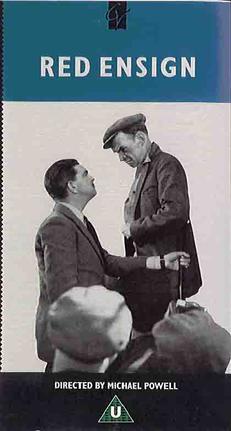Plot
In 1933, David Barr is the manager and chief designer of Glasgow shipbuilding firm Burns, McKinnon & Co. He comes up with a radical new ship design that can carry 25% more cargo for the tonnage and use less fuel at a time when the industry as a whole is in recession. Barr decides to build not just one ship, as Lord Dean advises, but twenty (to bring the costs down to a manageable level). Manning, a rival shipbuilder Barr loathes, hears rumors and sends two men undercover to find out what they can. They manage to get themselves hired. Manning then offers to purchase either the design or all the ships they can build. Both offers are rejected.
With the support of June McKinnon, the chief shareholder, Barr proceeds, despite the opposition of Lord Dean and other members of the board. He receives a severe setback when the Government declines to give him a contract or pass a shipping bill, and is driven to use his own money to try to complete the ship. When he runs out and cannot secure a loan to cover the payroll, a rabble-rouser tries to stir up the men, but Barr convinces them to stick by him. June, having heard his rousing speech, offers to let him obtain a loan on the security of her trust fund.
Manning's men knock out the night watchman and blow up the ship being built; a man named MacLeod is killed. Bassett, a reporter, informs Barr that MacLeod was third officer on one of Manning's ships.
Now needing funds desperately, Barr forges Lord Dean's signature to obtain a loan when Dean, as a trustee of June's trust, refuses to cooperate (partly out of jealousy of Barr and June's developing relationship). Manning finds out and tries to blackmail Barr into selling the design, but Barr refuses to do so and is convicted of forgery. Later, however, Manning is sought for manslaughter, while Barr is present when June launches the first of the new ships, the SS David Barr.
Production
Red Ensign was Powell's 12th film in four years. "It was the first time that Michael Powell himself realised that there was something special about a Michael Powell film, something going on on the screen, or behind the screen, which you couldn't put your finger on, something intriguing, aloof, but in the long run memorable." [3]
This page is based on this
Wikipedia article Text is available under the
CC BY-SA 4.0 license; additional terms may apply.
Images, videos and audio are available under their respective licenses.
